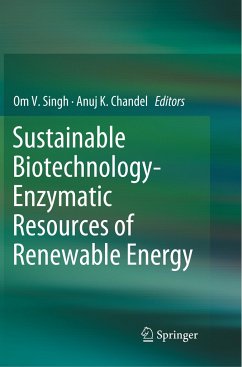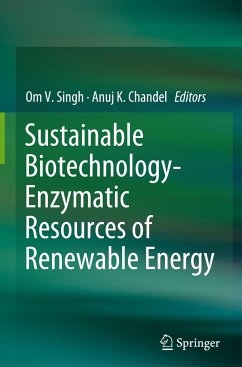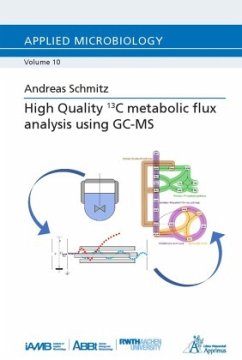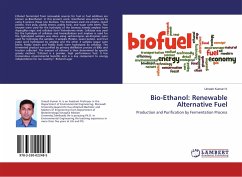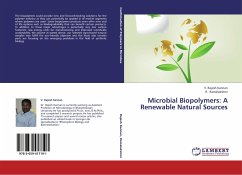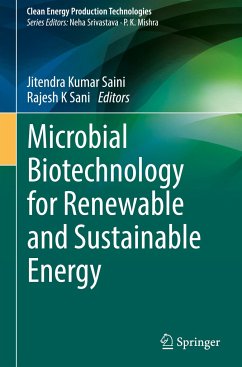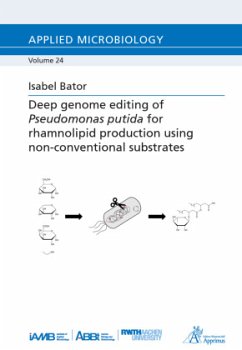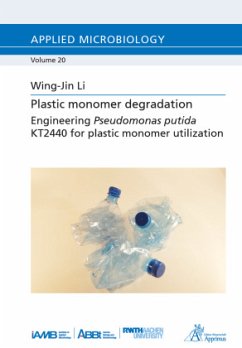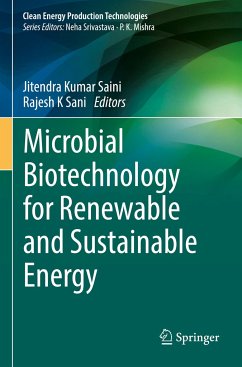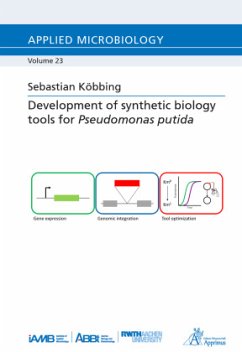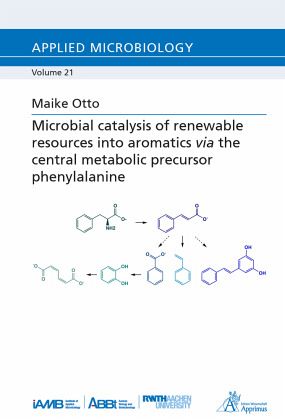
Microbial catalysis of renewable resources into aromatics via the central metabolic precursor phenylalanine
Versandkostenfrei!
Versandfertig in 6-10 Tagen
39,00 €
inkl. MwSt.

PAYBACK Punkte
0 °P sammeln!
This work describes the domestication of Pseudomonas species to produce various aromatic chemicals. The application of rational metabolic engineering strategies, including the deletion and alteration of chromosomal elements and the overexpression of heterologous genes, resulted in Pseudomonas taiwanensis strains that efficiently accumulate L-phenylalanine. Heterologous expression of a plant gene then allowed high-yield synthesis of the aromatic building block trans-cinnamate. The strains were further used as platform to produce several chemical compounds of industrial interest, including styre...
This work describes the domestication of Pseudomonas species to produce various aromatic chemicals. The application of rational metabolic engineering strategies, including the deletion and alteration of chromosomal elements and the overexpression of heterologous genes, resulted in Pseudomonas taiwanensis strains that efficiently accumulate L-phenylalanine. Heterologous expression of a plant gene then allowed high-yield synthesis of the aromatic building block trans-cinnamate. The strains were further used as platform to produce several chemical compounds of industrial interest, including styrene, pinosylvin, benzoate, catechol and cis,cis-muconate.



